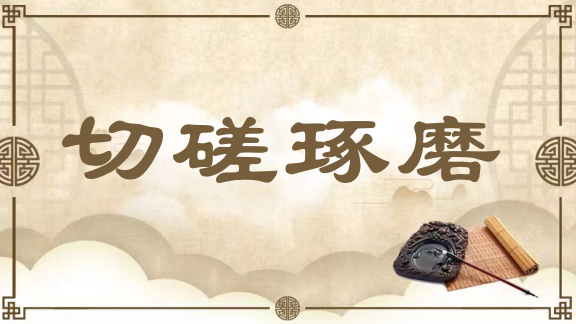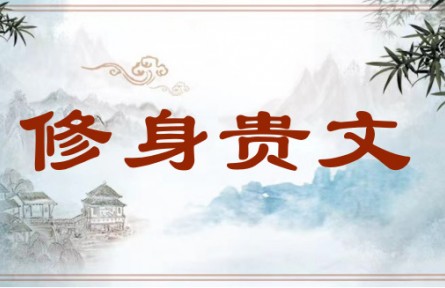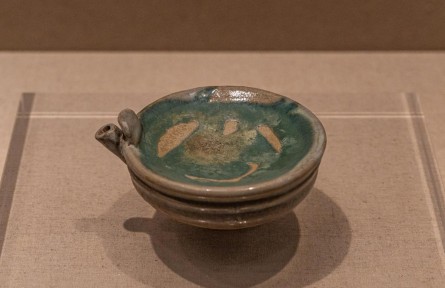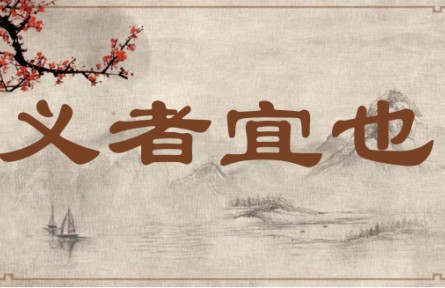Cutting, Polishing, Carving, and Grinding

加工器物的四种工艺。“切”指加工兽骨,“磋”指加工象牙,“琢”指加工玉石,“磨”指加工石料。古人常用兽骨、象牙和各类石料来制作器物,这些原始的材料必须经过“切磋琢磨”的加工才能成为精美的器物。从《诗经》开始,古人就用器物加工的过程来比喻人的道德学问的养成,认为人同样需要经过相互间的“切磋琢磨”才能成就精深的学问和美善的德行。
This concept represents the four artisanal techniques applied to various materials. Qie (切) signifies crafting animal bones, cuo (磋) indicates refining ivory objects, zhuo (琢) alludes to shaping jade, and mo (磨) pertains to grinding stone materials. In antiquity, people used animal bones, ivory, and diverse types of stones to create objects. These raw materials required the process of "cutting, polishing, carving, and grinding" to transform into refined items. Starting from The Book of Songs, the ancients used the processes of object crafting as metaphors for moral and intellectual cultivation. They believed that individuals also needed to undergo mutual "cutting, polishing, carving, and grinding" to attain deep knowledge and virtuous character.
引例 Citations:
◎《诗》云:“瞻彼淇澳,菉竹猗猗。有斐君子,如切如磋,如琢如磨。瑟兮僩兮,赫兮喧兮。有斐君子,终不可諠兮。”“如切如磋”者,道学也。“如琢如磨”者,自修也。“瑟兮僩兮”者,恂慄也。“赫兮喧兮”者,威仪也。“有斐君子,终不可諠兮”者,道盛德至善,民之不能忘也。(《礼记·大学》)
《诗经》写道:“看那淇水之畔深曲之处,菉草和萹竹茂盛。言行优美的君子,如骨之见切,如象之见磋,如玉之见琢,如石之见磨。其人庄严、宏大,其德行显赫、著名。言行优美的君子,始终不会被遗忘。”“如骨之见切,如象之见磋”,是说学习讨论。“如玉之见琢,如石之见磨”,是说自我修养。“其人庄严、宏大”,是说其神情严肃谨慎。“其德行显赫、著名”,是说其有庄重的仪容。“言行优美的君子,始终不会被遗忘”,是说君子高尚的德行极尽美善,百姓不能忘怀。
In The Book of Songs, it states, "Observe the winding course of the Qi River, where reeds and lush rushes grow. The words and deeds of a noble person are akin to precise cutting of animal bones, meticulous polishing of ivory, careful shaping of jade, and thorough grinding of stone materials. They are dignified, majestic, and renowned for their virtue. A noble person of fine words and actions will never fade from memory." "Precise cutting and meticulous polishing" symbolizes scholarly debate and discussion. "Careful carving and thorough grinding" mirrors self-cultivation. The sentence "they are dignified, majestic" portrays their serious and cautious demeanor. "Renowned for their virtue" implies they possess a dignified presence. The expression that "a noble person of fine words and actions will never fade from memory" signifies the noble person's virtuous conduct is so noble that it remains unforgettable to the people. (The Book of Rites)
◎子贡曰:“贫而无谄,富而无骄,何如?”子曰:“可也。未若贫而乐,富而好礼者也。”子贡曰:“《诗》云:‘如切如磋,如琢如磨',其斯之谓与?”子曰:“赐也,始可与言《诗》已矣。告诸往而知来者。”(《论语·学而》)
子贡说:“贫穷而不谄媚,富有而不骄纵,怎么样?”孔子说:“可以了。但不如贫穷而乐于道,富有而喜好礼。”子贡说:“《诗经》写道‘如骨之见切,如象之见磋,如玉之见琢,如石之见磨',这就是指这个意思吧?”孔子说:“赐啊,已经可以开始和你讨论《诗经》了。告诉你一个说法,你能知道与之相关的说法。”
Zigong said, "One does not fawn on others when poor; one is not arrogant when rich. How do you find such quality?" Confucius said, "Good! But it is even better to be poor and upright and to be rich and courteous." Zigong queried, "In The Book of Songs, it is written, 'As the bone is cut, as the ivory is polished, as the jade is carved, as the stone is ground.' Does this convey the same notion?" Confucius replied, "Zigong, now we can begin discussing The Book of Songs. When I share a concept with you, you are able to deduce its related saying on your own." (The Analects)
推荐:教育部 国家语委
供稿:北京外国语大学 外语教学与研究出版社
责任编辑:钱耐安





